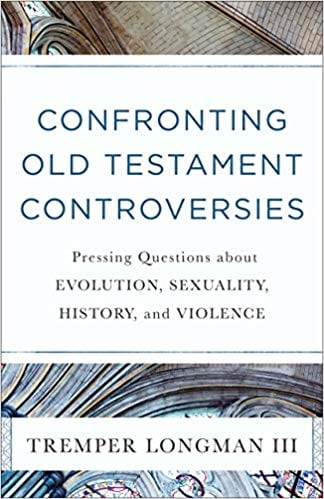Q. Let us suppose for a moment that there is a moral structure to the universe God has created, and even perhaps that ‘the arc of history tends towards justice’, though I am less sure of that last idea than the first one. Paul says ‘whatsoever you sow that you shall also reap’. Now what this seems to suggest, as a book like Proverbs intimates is that a lot of this language about divine violence, should actually be seen as a personalized way of talking about how God has structured life so that there are moral consequences to our actions, and in the end, final consequences at the last judgment. ‘Be sure your sins will find you out.’ If this is correct, then a fair bit of the language about divine violence is actually about inevitable justice, and not about God personally intervening in history again and again and bopping people on the head who misbehave. The example of Job makes my point— actually it’s not God who messes with Job directly, its Ha Satan, though God gives him permission to do it. The further we go in the canon the less the tendency to attribute everything to God’s direct action, and the better sense of secondary causes the Biblical writers reflect. A God of judgment is one thing. A God of direct violence against humanity is another. What would you say to this reading of the data (and I am not here referring to God intervening and rescuing his people from harm, but God himself intervening and doing harm)??? [Here again, see Heiser’s The Unseen Realm]
A. I’m afraid I again respectfully disagree at least a bit. I speak to the idea of trying to draw a distinction between a depiction of God acting directly but the actual God not doing anything of the type in my interactions with Peter Enns and Greg Boyd in my book. First, I think that so much of the Old and indeed New (particularly in the apocalyptic literature) depicts God bringing violence against people. Second I think the example of Job does not alleviate God of action. Whether hasatan is the Devil (which is unlikely, see my Job commentary or How to Read Job co-written with John Walton) or simply one of God’s angelic servants, by giving permission God is taking responsibility. If someone comes to me and asks my permission to harm another and I grant it, I am still responsible for the action. And in both the OT and the NT God rescues his people from harm by bringing harm to those who are hurting them. I know this raises issues in our minds (particularly our twenty-first century Western minds), but I have found attempts to explain away God’s involvement in judicial violence unconvincing. [N.B. I would simply add that God put restrictions on what HA SATAN could do, and then according to the end of book he reversed the bad effects! This hardly seems like an example of divine violence to me].












